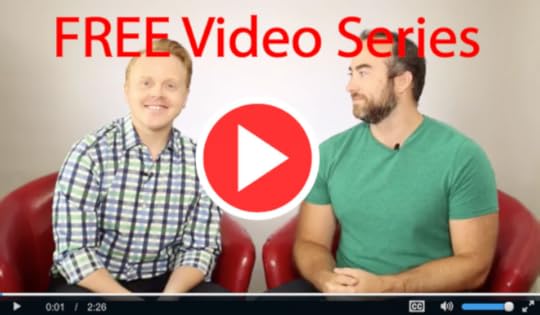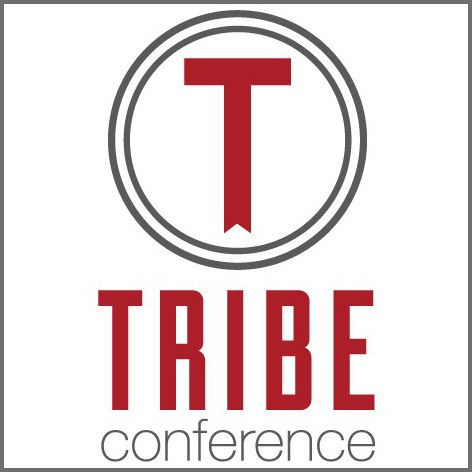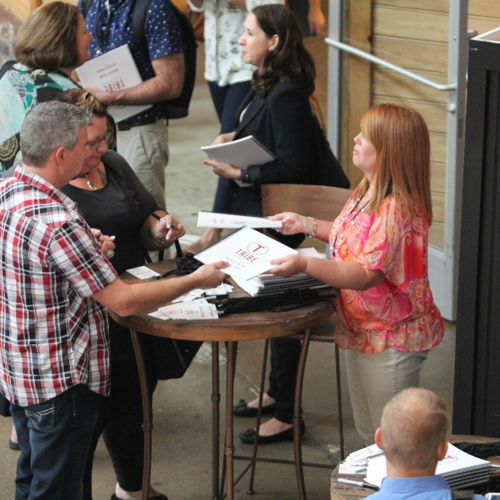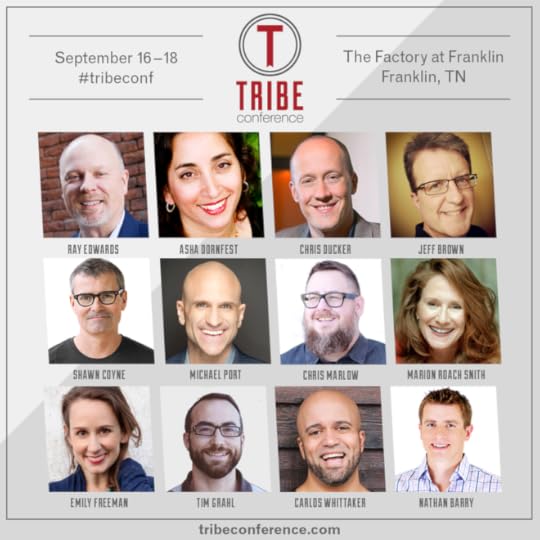Jeff Goins's Blog, page 36
August 12, 2016
How Tiny Goals Changed My Life And Made Me a Real Writer
Hi. My name is Shaunta, and I’m a “tiny goal” addict. Also: Hi. I’m a writer, and I have never had writer’s block. Like, ever. It’s true. And guess what. Those two admissions are closely tied together.
I’ve never had writer’s block because I am addicted to tiny goals.
It wasn’t always that way. I used to make big goals for myself. I’d get a notebook and write out an elaborate plan for writing three hours a night after my kids were in bed (even though I’m totally a morning person.) Or writing 2,000 words a day, because that’s what Stephen King does. He said so in On Writing.
And I might make it through a day or two. Maybe a week. But inevitably, something would happen. Some family thing. Some work thing. And when I was faced with not having a three-hour block for writing, I’d skip the whole day. And without fail, that day turned into a week or a month or even a year.
And then the whole thing would start over again.
I was writing, sometimes, but I didn’t feel like a writer. I didn’t feel like it was my job, because I was making such sporadic progress. Sometimes I wrote like a fiend. Sometimes I’d go weeks or months without writing a word, because I felt so behind that it was hard to even think about writing without feeling guilty.
How I started using tiny goals
When my daughter Ruby was five, she had pneumonia. We lived in a tiny rural Nevada town, so I had to travel with her to Las Vegas where she was in the hospital for three weeks. I wrote a lot during those days, and I thought a lot about being a writer.
I didn’t have much else to do, and writing kept me sane. Writing has always kept me sane, so pulling out a notebook every day was a no-brainer.
I realized, during those weeks, sitting with my little girl in the hospital, that I really did want to be a writer, and I wasn’t going to get there by writing in short-lived (but heroic) bursts. I needed a daily writing habit. I made a promise to myself to write a page a day for a month after we got home.
Six weeks later, that page a day goal turned into the first draft of my first published novel.
How tiny goals work
Think of either an amount of time or a number of words that you are absolutely certain that, no matter what else happened in a day, you could meet.
Now cut that in half.
Maybe, cut it in half again.
Keep going until you have a goal so small that it would be psychologically more difficult for you to break it than it would be for you to just give in and get it done.
Now, small is relative. After years of working really hard to get here, I was finally able to quit my day job this year. I’m a full-time writer. So writing 500 words or working for thirty minutes a day on my fiction writing is my current tiny goal.
You might be thinking, Jeez, lazy. Thirty minutes a day, and you don’t even have a day job? That’s ridiculous. I get that. Just stick with me, though.
You’ll see.
“The whole purpose of a tiny goal is to get you started.Tweet thisTweet
A few months ago, I was still working full-time, and I was building an online business, and I still had the regular family obligations. (I’m a soccer mom, I have an adult son with autism, and my parents-in-law with dementia live with me.) Back then, 500 words a day wasn’t a tiny goal. It was a pipe dream.
My tiny goal then was ten minutes a day.
I can do anything for ten minutes a day. I can write for ten minutes a day—even on my busiest, craziest day. Sure, sometimes I might be scribbling at red lights or in a notebook balanced on my knees when I’m in the bathroom, but I can do ten minutes every single day.
I’ve never personally had to go less than that for a tiny goal, but I see absolutely nothing wrong with having a thirty-second goal if that’s where you are. A one-sentence goal. Honestly, whatever hits that sweet spot for you where it would be harder to skip it than to just get it over with.
Tiny goals are (mostly) just a trick
I mean, sure. Technically, if you want to set your timer for thirty seconds, write one sentence, and quit until tomorrow, go for it. At that rate, you’ll probably write one book in your lifetime, and that’s all Margaret Mitchell knocked out, right?
But if you can do ten minutes, here’s what that might look like in practice:
You sit down at your desk. You open your manuscript file. You maybe re-read your last paragraph. You put your fingers on the keyboard. You start typing.
“What a tiny goal does is help you get past the initial hurdle of starting to write.Tweet thisTweet
Here’s what the transformation from ten minutes of writing to twenty or thirty or an hour or more looks like:
You keep typing.
See?
The whole purpose of a tiny goal is to get you started. The stuff that happens before you start writing can be monumental. You have to talk yourself into choosing writing over all the other things you could be doing with those ten minutes. And if you are anything like me, every minute of your day, you’re making a choice between at least three things you could be doing.
Write or start a load of laundry?
Write or check your kid’s math homework?
Write or talk to your partner about that bill you forgot to pay?
And those are just things you could do instead of writing for ten minutes. If you have a goal of, say, writing three hours a day, now you’ve entered a whole other ball game.
Write or have a part-time job?
Write or take a college course or two?
Write or take your kid to the park?
Whew. Pressure! No wonder it’s so easy to just skip it, sometimes for days or weeks on end.
Tiny goals to the rescue!
What a tiny goal does is help you get past the initial hurdle of starting to write. It gets your butt in a chair. It gets that manuscript file opened. It gets your fingers moving.
Once you get going, momentum takes over. I would estimate that at least 90 percent of the time, I far exceed my tiny goal. Right now, I generally write fiction at least two hours a day. When I was still working my day job, I usually managed twenty to thirty minutes a day.
Having a daily tiny writing goal does something else, too. It keeps the idea that you really are a writer front and center in your brain. And you want to be a writer, so keeping that little bitty commitment becomes something that feels really good on more than one level.
Tiny goals aren’t only a mind trick, though. It’s not like I give mouth service to writing 500 words a day but secretly expect myself to write 2,000 instead. I truly give myself permission to write 500 words a day (or, when things are super hectic, 10 minutes a day.) There are days where I stop mid-sentence and put it away until tomorrow. There are days when I feel like I’m fishing each word out of my gray matter with a toothpick.
On those days, I get my little bit of forward motion in, and then I don’t think about it again until the next day. The key is to make that forward progress every single day.
If you commit to making a tiny bit of progress every day, you’ll find that momentum carries you right through writer’s block like it doesn’t even exist. If you’re really stuck, go ahead and give that thirty-second goal a try.
What ridiculously tiny goal can you set today? Share in the comments.

August 10, 2016
115: Why You Need to Stop Trying to Write the Perfect Book with Shauna Niequist
It’s hard to focus. With phone in my pocket and calendar filled with family time, running a business, and writing a book, embracing the present is a challenge. And I know I’m not alone in this.

All of us feel a little overwhelmed at times (or maybe all the times). We have obligations and opportunities. We’re working or studying, and trying to exercise, volunteer, work on side projects, and oh yeah: actually enjoy ourselves.
It’s easy to fall behind, feel disconnected, and or have that sense that we’re missing out on everything. But we don’t have to live like this. Busyness is not a virtue. If anything, it often does you more harm than good.
This week on The Portfolio Life, Shauna Niequist and I talk about her latest book, Present Over Perfect, and how she learned to forgo settling for busy in order to live a more simple, yet actively engaged life.
Shauna also allows us to peer into her writing life to let us see how she turns ideas into books, how she outlines her work and collaborates with editors, and what it means to not fixate on being a perfect writer.
Shauna’s story is our story. At one time or another, all of us will battle with feelings of exhaustion in our pursuit for more. Listen in as she and I discuss what was going on in her life that motivated her to write this book and why the perfect story doesn’t exist.
Listen to the podcast
To listen to the show, click the player below. (If you are reading this via email or RSS, please click here).
Show highlights
In this episode, Shauna and I discuss:
Whether or not you should read while you’re writing.
Authors you should be aware of and read.
What was taking place in Shauna’s life that inspired her latest book.
Why your sense of value doesn’t come from what you earn.
The importance of telling your life’s story unfiltered.
How to find book ideas from your life and turn them into books.
Respecting the relationship between readers and writers.
Why the concept of perfectionism is not really applicable to writers.
Working with editors in your book writing process.
Quotes and takeaways
“I’m always telling a story, and mine is the only one I know how to tell well.” –Shauna Niequist
Our sense of value does not come from what you create and earn.
“Don’t like to write, but like having written.” –Frank Norris
Don’t forsake the well-being of your personal life for your professional aspirations.
“There is no there-there.” –Gertrude Stein
There’s always time to let go of bad habits in order to pick up new ones to carry with you to tomorrow.
Resources
Present Over Perfect , by Shauna Niequist.
046: Learning to Savor: An Interview with Shauna Niequist, by Jeff Goins.
Orthodoxy , by G.K. Chesterton.
How to Survive a Shipwreck , by Jonathan Martin.
How to Celebrate Everything , by Jenny Rosenstrach.
Dinner: A Love Story , by Jenny Rosenstrach.
What’s the one thing you took away from today’s life that applies to your life? Share in the comments.

August 8, 2016
3 Reasons You’ll Never Write That Book
You didn’t do it. You said you were going to. You thought about it, dreamed about it, imagined what people would say when you finally did it. But here you are, still having not written a book. So why didn’t you do it?
In all my conversations and coaching sessions with writers over the years, I’ve learned there are three main reasons why so many writers never complete, or maybe even begin their books.
Currently, I’m working on my fifth book. I’m two edits in. 65,000 words. It’s the best thing I’ve ever written. The most research I’ve ever done.
I am so, so proud of the work that’s gone into this book — the original interviews, hundreds of books I’ve read, the five months of just thinking about it before writing it. By the time I’m done, I’ll have spent three years getting this message right.
And yet, every day, I face three big reasons not to go any further. To just give up and think, “Oh, well. At least I tried.”
Of course, that’s the worst thing I could do at this stage, and probably the worst thing you could do, too. We give our obstacles more power than they deserve, and we give up without ever really facing them.
In that vein, I think that once you name something, it loses a lot of its power. You can acknowledge that any challenges you face are not completely paralyzing.
You can go to work.
You can finish your book.
You can learn to do it despite yourself.
So once we name and acknowledge these three big reasons, we can start working toward a solution. We can learn to lean in and work through the obstacles that are far from insurmountable.
So here they are — the three big reasons every writer struggles to start or finish a book.
1. Fear
This is a question of identity. Who are you? Are you a writer, or an aspiring writer?
As I’ve said before, I believe activity follows identity. If you want to be a writer, first you must call yourself one. This takes bravery. You must believe it and then become it, acting your way into this title you’ve now claimed.
It’s not easy. One does not automatically follow the other, but I also believe that the latter cannot happen at all without the former.
“If you want to be a writer, first you must call yourself one.Tweet thisTweet
Hemingway said, “Those who say they want to be writers, and aren’t, don’t.” He knew that if we suspend ourselves in a perpetual state of aspiring to be something, we won’t ever be it, and we won’t ever do it.
Shame researcher Brené Brown says that when we have an idea, we have just three seconds to make a physical action toward that idea before our brains pull the emergency break and talk us out of it.
So, if you want to be a writer, say it aloud. Or write it down. Do it before you can pull the emergency break on yourself and your calling. Do it afraid.
2. Lack of time
I can relate to this obstacle every day. There are so many details to attend to that it’s easy to neglect our writing, or delay it for “a better time.” But the truth is that a better time will never come. It just won’t.
Years ago, before I had kids, I had Thursday nights to myself when my wife would leave the house to meet some friends. I considered that time to be my dedicated writing window, and I looked forward to it all week.
When it came around, I would set the mood for myself very intentionally. I’d light candles, make a great drink, play some inspiring classical music — the works. I was convinced that the timing and environment needed to be just right before the Muse would grant me a visit.
“You don’t need more time to write. What you do need is to make the most of the time you have.Tweet thisTweet
Every week, it was the same story — I’d spend so much time preparing to write that by the time I had 15 minutes left on the clock, I hadn’t written a single word.
Frantic, and desperate to have something to show for my dedicated writing time, I would spend the last 15 minutes blazing through 1000 words, and I’d look up, breathless, just as my wife was walking through the door. “How’d the writing go?” she would ask.
It took that happening several times before I realized that writing was less about having dedicated time than I thought. It was about having a deadline and a reason to finish.
You don’t need more time to write. It doesn’t exist. What you do need is to make the most of the time you have.
3. Lack of focus
The irony, of course, is that when we make the most of the time we have, we are often inundated with too many new ideas to act on.
This is the burden of the creative mind: we must welcome the ideas while tuning out the distractions. We must receive and ignore selectively, and hope we get it right.
The research for my latest book has led me down the rabbit hole of understanding distraction to be one of our greatest gifts as writers. It is our capacity to hold multiple ideas at once that makes us creative in the first place, but it is our ability to execute on those multiple ideas that separate us from the amateurs.
“It has always been true that lack of focus is one of every writer’s greatest challenges.Tweet thisTweet
It’s not enough to simply have lots of ideas. At a certain point, we have to be able to channel that energy into our writing and actually get something down on paper.
I don’t believe that focus is any harder now than it was in the days of our writing heroes. Even Rainer Maria Rilke once said, “We lead our lives so poorly because we arrive in the present always unprepared, incapable, and too distracted for everything.”
It has always been true that lack of focus is one of every writer’s greatest challenges, and that if we can overcome it, we have nearly reached our goal.
There is hope (and it’s free!)
So what’s a writer to do in the face of these three great challenges? Fear, lack of time, and lack of focus will likely never disappear entirely, but what are we to do in the meantime? Is there any way to hack the process of confident, focused, productive writing?
I believe there is.
This week, I’m co-launching a free video series that will help you attack the three big obstacles listed above.
Want to fight fear, lack of time, and lack of focus? Want to ensure you write that book this year? Join my friend Tim Grahl and me as we share exactly what steps you need to take to become a prolific, productive writer.
And who’s Tim, you ask?
You may know him as the book marketing expert and author of Your First 1000 Copies. He’s the pro behind the bestselling book launches of authors like Daniel Pink, Hugh Howey, and over 100 more. But he’s a lot more than that. He’s also one of the most organized and disciplined writers I know. We put our heads together to create this amazing resource just for you.
Again, this is a free video series just for my and Tim’s audiences. We’ve designed it to help you with exactly what you’ve been asking us to create for years, and we can’t wait to see your writing career take off as a result.
Click the image below to get started today:
What fear of writing do you struggle with the most? Share in the comments.

August 5, 2016
Why I Created a Conference in a World of Too Many Conferences
The world doesn’t need another conference. There are enough summits and meetups and festivals to last a few lifetimes. And we certainly don’t need another event telling you that you aren’t doing enough.
But what there may be room for, what we just might need, is not another busy extravaganza with every minute of the schedule packed to the max, but rather, a place to breathe. A place to be.
An experience that leaves you changed.
For years, people asked me to start a conference. And for years, I resisted. We didn’t need another event with too many people to meet and soon forget. We didn’t need more information and another swag bag full of junk and business cards you have no intention of keeping.
But when I looked around, I saw a gap.
As a writer, I noticed there were two types of conferences that attracted me. One was your typical writers’ conference, during which you usually get all kinds of great writing and storytelling advice and maybe a chance to meet an agent or a publisher. By and large, these events are not up to date on the latest technology and trends in self-publishing, social media, and all the other ways working writers make a living today.
Then, there were the social media and blogging conferences, which focused more on tactics to build an audience and make money, but were not necessarily so helpful in finding your voice and honing your craft.
What I wanted was something in between those two. Or perhaps, both. But I couldn’t find such a conference. So I created it.
The lesson here is simple: when you can’t find the thing you need, go create it.
What the Tribe Conference is and how it’s different
The Tribe Conference is a gathering of writers, creatives, and artists who want to find the audiences their messages deserve without compromising their craft.
If you find yourself worn out by yet another blogging conference telling you about the latest social network or another speaker telling you to “just keep writing,” and you want more than tactics or empty inspiration, then the Tribe Conference is for you.
This is a curriculum-based conference. What that means is we follow a set of proven steps that will help you find the audience your writing deserves.
“When you can’t find the thing you need, go create it.Tweet thisTweet
Here’s how it works. Each session lasts a few hours and includes at least 2–3 speakers per session. I, Jeff, act as the emcee and resident sherpa to help guide you through these sessions and connect the various teachings from the guest speakers.
Session 1: Honing Your Voice
In this session, we’ll talk about what it means to be a writer and communicator and why how you say it matters just as much as what you say.
Session 2: Establishing Your Platform
During this session, we explore what it means to build a platform that gets you noticed today. This is where we cover the nitty gritty of websites, podcasts, and more. You will receive both strategic and tactical advice on what to do to begin building or improving the platform you have.
Session 3: Expanding Your Reach
After laying a solid foundation, we look at the tools and techniques you need to increase your influence. These include email marketing, social media, networking, and more. In this session, you’ll learn what it takes to grow your platform and find your tribe.
Session 4: Going Pro
Finally, we will challenge you to take your tribe to the next level and make a living off serving your audience. Here, we talk about publishing and other means of getting paid for your work.
You can go here to learn more about the conference’s daily schedule.
The speakers
Who are the speakers, and how do they fit into a curriculum-based conference?
Well, first of all, the speakers are my friends. Every person who steps up on that stage is someone I know and trust. And because of that, you, too, can trust them.
We follow the same four-step process each year, but the event is always changing. The reason for this is each guest speaker brings a different perspective and area of expertise with them. So the proven process is the same, but the way it is taught is always changing.
This is the best of both worlds. You get a practical process that gets you real results, all while seeing a dynamic set of professional speakers doing their best work right before you.
Who exactly are these people?
They’re former journalists and retired radio personalities turned podcasters. They’re full-time novelists and professional food bloggers. Most of all, they are people who have found their voice, established a platform, expanded their reach, and gone pro. In other words, they’re worth listening to.
Here’s a taste of who they are and what some of them will share:
Emily Freeman, one of my most favorite writers, will be speaking on finding your voice.
Michael Port, a former actor and NY Times best-selling author, will be sharing his thoughts on speaking and performance, as well as what it takes to be memorable.
Carlos Whittaker, the smartest social media maven I ever did meet, will challenge you to make every moment you’re capturing actually count.
Jeff Brown, who has 25 years of professional radio broadcasting experience, will be talking to us about podcasting and how anyone can get started.
Asha Dornfest, the founder of one of the biggest parenting blogs in the world, will be talking about growing up with your community and how to keep a good thing going.
Chris Marlow, a nonprofit leader and author, will be sharing how to launch a movement that changes the world.
Ray Edwards will be schooling us on writing words that persuade.
My writing mentor Marion Roach Smith, who used to work for The New York Times and has been coaching writers for two decades, will talk about what it means to write well.
Tim Grahl and Shawn Coyne, who host an incredibly popular podcast on storytelling called the StoryGrid, will be sharing what it takes to go pro as a writer.
Nathan Barry, an author, blogger, and the founder of ConvertKit, will talk about how you can build an engaged and profitable email list.
And Chris Ducker, a successful entrepreneur and bloke with a sweet British accent, will be talking about what it means to build a business around your personality.
Joe Bunting will be returning to the conference to host a small fiction writing workshop, and Grant Baldwin will be doing the same for those who want to grow as speakers. We also have a couple of guest speaker panels, which we’ll be sharing more about soon.
And so much more. (Last year, there were musical guests and surprise popsicles, among other things. You just never know.)
What you get when you come
When you sign up for the Tribe Conference, you can choose one of two options:
Standard ticket
This ticket gets you all three days of the conference, including every main stage session and some refreshments during the event (plus other random surprises we throw in).
Premium ticket
Or, you can choose to upgrade to the premium ticket. With this comes all of the above, plus a VIP meet and greet with the speakers, a three-hour workshop after the event, and some other assorted goodies we throw in just to wow you.
Once you’ve decided which ticket is best for you, all that’s left to do is show up ready to learn.
Every dollar we make goes directly toward making this the best conference you’ve ever attended. We want to make this an unforgettable, life-changing experience.
Everything we do at the Tribe Conference is about people — it’s about helping you connect with the tribe you need to go pro and to create a space where community can happen right now.
We believe that every story of success is a story of community. And we’d love to be that community for you.
Will you join our tribe and let us help you find yours?
Early bird pricing for the Tribe Conference expires tonight at midnight! Get your ticket before the price goes up. Learn more here.

August 3, 2016
114: An Embarrassing Confession About This Year’s Tribe Conference
Last year, I was scared when we launched the Tribe Conference. My team and I had very little experience hosting events. We had no budget. And we had no idea what to expect. This year, I’m still afraid, but for different reasons.

The first Tribe Conference went extremely well. The experience far exceeded our expectations. And the attendees not only enjoyed themselves, but many of them also fulfilled goals afterward they previously thought were unattainable.
With the experience of the first Tribe Conference under our belt, we’ve set our expectations high for this year’s event. We’re staring down the fear of a sophomore slump. And we’re going full speed ahead in creating an even better experience for participants.
This week on The Portfolio Life, Andy Traub and I talk about how this event was created to help writers, artists, and creative entrepreneurs grow their craft and get the attention their work deserves.
Listen in as we go behind-the-scenes of the upcoming Tribe Conference. We share the fears we’re overcoming, why this conference is more like a workshop, and how this event will help you find your voice, build your platform, and go pro with your dream.
Listen to the podcast
To listen to the show, click the player below. (If you are reading this via email or RSS, please click here.)
Show highlights
In this episode, Andy and I discuss:
My single greatest fear for this year’s Tribe Conference.
Why we think this year’s conference will be better than last year’s.
How this event is like a workshop for writers and creatives.
The four-step process you will go through to improve your craft, and build your platform.
What you will learn, and how you will grow from this event.
Receiving personal coaching during the conference.
Resources
Tribe Conference 2016.
079: Lessons from Creating a Conference from Scratch in Three Months, by Jeff Goins.
My Latest Experiment: Launching a Conference — Why I’m Scared & Doing It Anyway, by Jeff Goins.
How I Finished Writing My Book in 90 Days, by Sandy Kreps.
Download the full transcript here.
Have you faced the challenge of overcoming a sophomore slump? Share in the comments.

August 1, 2016
Most Conferences Are a Waste of Money… Unless You Do This
When I first starting writing, I heard people talk about conferences. They said go to this one or that one. It was a good way to “connect.” But what was I, a shy guy, going to do at a conference?
I’d also heard the case against conferences. The crowds. The unnecessary expenses. The inspirational but ultimately un-actionable content you tend to get. I just wasn’t sure the investment was going to be worth the cost, for me.
But then, on a whim, I forked up the cash for a conference and was blown away at the content and the experience. That was the place where I first started calling myself a writer. I was hooked.
And so it began…
Shortly after that, I found a way to volunteer my services as a writer to attend another conference. I didn’t expect much from the conference but wanted to get to know the event planner better.
After four life-changing days, I began to drop some of my skepticism about conferences. And over the course of about six months, I began building a network, organically and somewhat accidentally, of writers and bloggers and people whom I would soon call “friend.”
Within a year, I had formed some of the most important relationships in writing career — many of which came from conferences, meetups, and other kinds of events. In fact, it was at a conference in Chicago, eating panini sandwiches, that I met an editor who published my first two books.
In the world of writing, an important step to success is forming the right relationships. In fact, I think this is true in many different industries, but it seems to be especially true for creative ones. Who you know matters. And a great way to meet more people is to attend conferences.
You can’t do this alone
This journey towards becoming a writer is not a solitary one. You will need help. You will need guides and mentors and peers to help you find your way.
This is the secret to success that few people like to admit: no successful person ever succeeds alone. Just as Hemingway went to Paris in the 1920s to be around some of the most interesting literary minds of the century, you, too, will have to find a tribe you can learn from.
But if you’re not careful, you can totally waste your time and money going to the wrong conferences. You can just go from inspiration to inspiration without any practical application. So it’s important that you know how to make the most of your investment, if you decide to register for a conference.
Here are a few goals you need to have when attending a conference if you don’t want the experience to be a waste. These are lessons I learned from attending conferences and from hosting one myself, and I hope they help you.
Goal #1: Learn
You need to go to a conference that has the kind of speakers you respect and want to learn from.
I can’t learn from someone who hasn’t done what I want to do. It’s a personal preference but an important one. I must be learning from people who have done the thing that I want to do. Otherwise, I feel like it’s a waste.
Also, a secondary but significant goal for me at a conference is to meet one of the speakers. This is easier than it sounds, actually. It doesn’t have to be some A-list presenter, but the point of an event is connection with people, and you’d be surprised at how accessible some “celebrities” are.
I first learned this when I attended World Domination Summit and asked, out of the blue, if Chris Brogan would be willing to meet me in person. He replied to my email, saying he’d love to. We played it by ear and ended up skipping a session, chatting in the lobby.
By the end of our conversation, there was a small crowd surrounding Chris, peppering him with questions. I didn’t mind. Here was a blogger whom I respected and had only interacted with online, and we had just spent an hour together, chatting. We’ve been friends ever since. I don’t remember the session that I missed, but I know I was able to watch it online later.
How to do this:
Reach out to the person ahead of time to book a meeting at the conference. Once the event starts, everyone will want to meet these people. So just email them a week in advance, asking for 15 minutes of their time.
Offer to buy them a meal or coffee. Something. Demonstrate that you’re not a taker, but a giver.
Do this whenever it is convenient for them. Early in the morning, late at night whatever. When Chris emailed me back and asked if I could meet him in the lobby in five minutes, I immediately grabbed my stuff and left the auditorium.
Lesson: You can meet influential and important people at conferences if you are willing to make sacrifices.
Goal #2: Connect
Second, you need to go to conference that has the kind of attendees you want to be around.
Who, exactly, is that?
Well, it should be people like you. When I hosted the Tribe Conference last year, I was amazed at how many people said that was their first conference ever. What made them want to attend it? They didn’t know there was a place where they could go and people others just like them.
I’ve had this same experience as an attendee at several events. There’s something powerful when you end up some place and instantly feel like you belong.
For me, I don’t want to go some place where I can’t tolerate the people attending the event, no matter how good the content is. This is why I don’t attend many business and marketing events. I just don’t love being around that crowd.
Perhaps the most memorable part of an event is the conversations you’ll have in the hotel lobby or outside the bathroom in between sessions. It’s the late-night hangouts or random lunches with strangers that will stick with you. So you want to get some place where people “get” you.
What does this matter? Because if you go to enough conferences with jerks and swindlers and people who represent values you don’t want, well, some of that just might rub off on you. You are the company you keep, so choose to hang with the kind of people who will make you better.
My first conference, I sheepishly attended a meetup for bloggers and was too nervous to introduce myself to anyone. Nonetheless, another blogger named Kyle whom I knew from Twitter came up to me and said hi. We stayed in touch and became close friends after that (we just had lunch the other day).
Later, he told me that he could tell I was nervous and that’s why he approached me in the first place. This is what you want — people who get you, who will make you feel comfortable, even when you are unsure of yourself.
What I learned from Kyle is that we can all do this. So the very next conference I attended, I found someone who looked nervous and was clinging to the wall, and introduced myself. Worked like a charm.
How to do this:
Go to the event (this is important but something we shy people tend to overlook — yes, you actually have to show up).
Find someone less confident than you — because when you’re shy and unsure of yourself it’s hard to approach someone who is larger than life. So just find someone who is looking around the room, lost.
Say hi to this person and ask them this question: “What are you hoping to get out of this conference?”
If you need more help with this, check out this old interview I did to on how even as a shy guy I am able to meet new people at conferences.
Lesson: You can make lasting relationships at conferences if you go where people like you already are and meet people who are just as nervous as you are.
Goal #3: Apply
Third, you need to go to a conference with the intention of not just learning but of applying what you will learn. This means that the conference must have the kind of information that will make you better.
In other words, the content has to be more than just basic stuff you can Google. It needs to include exclusive teaching or access to the speaker or a brand-new application of it.
When I started attending a few conferences a year, I realized that what I wanted was not just a good experience but a transformation. To take home with me the things that I had learned and be able to apply to my own context.
So I started making a habit of putting into practice the things I learned at the conference before I even left the event. Forget notebooks filled with information you’ll never look at again; this is the best way to get your money’s worth out of a conference. Just do it before you leave.
I learned this from my friend Danny Iny when I saw him pull out his computer in the middle of a speaking session at a conference and send an email to his assistant.
“What are you doing?” I asked.
“I’m telling my team to start doing this right now.”
He then proceeded to tell me his rule for attending conferences: find three actionable nuggets and put them into practice before the event is over. Once you’ve done that, you can enjoy the rest of the event, guilt-free.
I saw him do this several times throughout the conference and decided to make that same practice a habit.
How to do this:
Decide ahead of time what you want to get out of the experience.
When you hear something that resonates with you, step aside to put the thing into practice. That could mean taking a break or simply emailing yourself a to-do item.
Set a quota (e.g. “I’m going to immediately apply three things I learn at this conference”) and give yourself permission to stop once you’re done.
Lesson: Going to a conference won’t be a life-changing experience unless you are willing to be changed by the experience itself.
Why I created my own conference
There are a lot of conferences and events out there. A lot of paid mastermind groups and summits and experiences to keep you busy for a long, long time. Honestly, it’s easy to pick the wrong thing. It’s easy to get swept up by where everyone else is going and what everyone else is doing.
But that shouldn’t concern you. You need to go where you know you can learn from people you trust, connect with people you respect, and apply information you need.
After attending conferences for the past four years, one thing struck me as a writer. There aren’t many options available for writers and creatives who want to thrive in the modern age. There aren’t many places that help you understand where to begin, who to connect with, and what plan to follow after you leave the event.
In fact, I knew that the kind of conference I needed when I first started writing did not even exist. So I tried to cobble together some disparate experiences by attending a number of different events, but that became harder and harder to do year after year.
So I decided to create my own.
When people come together, life change happens. One person told me, it was “the best conference” they’d ever attended. Another told me it was the only one they’d ever attended.
But the truth is for a conference to make a difference, it has to have the right people, with the right message, delivered in the right way. Otherwise, you will waste your money.
That’s what the Tribe Conference is all about. It’s a place where writers, creatives, and artists can gather to share their messages and grow in their craft. It’s an event that gives you the practical known-how and inspiration to take the next step in finding the audience your message deserves.
What happens at a good conference
One attendee of the Tribe Conference, David Villalva, had this to say after leaving the event:
Every presenter and attendee I spoke with changed, challenged, or charged me. I arrived at this conference thinking I needed to somehow survive it. Instead, I discovered what it meant to be part of a tribe, and left feeling like I thrived in one.
I’ll be the first to admit that the reaction to our little event surprised me. But this was my goal: to create a place of belonging and transformation. And this is what I look for as an attendee of other events — to belong and to be changed.
Nearly half of last year’s attendees are coming back to the Tribe Conference because they’re making progress on the plans they started last year. Whether that means launching a blog or finishing a book, they’re taking action. And they want learning, connecting, and applying. It’s an honor to be a part of this growing community.
Last year was our “pilot” year to see if it worked, and it went even better than I could have imagined. This year is going to be even bigger and better, with expert speakers, brand-new technology and tools we will be featuring, and more fun surprises.
If you’ve ever dreamed of being a professional writer, then Tribe Conference is for you.
If you have struggled to figure out how to use digital technology to get your message heard, then Tribe Conference is for you.
If you dream of one day writing a book or speaking for a living or simply getting the attention your message deserves, then Tribe Conference is for you.
To check out the schedule, learn more about ticket pricing, and sign up before we sell out, go here.
If you’d like to get going on that dream of yours and connect with a whole host of speakers including Ray Edwards, Michael Port, Marion Roach Smith, Emily Freeman, Chris Ducker, and others, then sign up for Tribe before the price goes up.
Join us September 16–18 in Franklin, TN at the Tribe Conference. It’s going to be great!
What do you think of conferences? Share in the comments.

July 29, 2016
7 Ways Police Work Made Me a Better Writer
My father was a man’s man. In World War II he served as a drill instructor in the United States Marine Corps. He went to law school and passed the state bar exam on his first attempt, despite being ill with a high fever and hands swollen from hives.
He became an administrative law judge, deciding multi-million dollar cases. He wore a crew cut, had a deep voice, embraced pragmatism and was a veritable polymath. In contrast, I was a sensitive kid with long hair who loved to draw cartoons and write creative stories. Not exactly Marine Corps material.
When I was sixteen I worked up the courage to tell Dad I wanted to be an artist and writer. He sat back in his reading chair, closed his book and said, “There’s a fellow in town named Jack Wilson. He’s a palette knife painter. I like his work. But here’s the thing, Johnny. It’s a tough life. Jack is on the road a lot, going to different art shows. A career in the arts can be hard.”
Where dreams confront reality
Dad’s response was not what I wanted to hear. But then he added, “There’s no reason why you can’t be an artist and writer. But get an education first and find a career that interests you, to pay the bills. Then, in your off time, you can paint and write. If the art takes off, great. But you’ll always have the other profession to fall back on.”
“So pragmatic and predictable,” I thought to myself. “The perfect recipe for selling out and settling into an unremarkable life of mediocrity. Nope, not for me.”
Of course, I folded pretty quickly.
After all, the old man was footing the bill for college. I put my art dreams on hold and declared a major in criminal justice administration. My thought was to become an attorney or police officer to pay the bills.
Between classes, I drew editorial cartoons for the university newspaper, which fed my creative appetite. After graduation, Dad talked me into graduate school where I obtained my master’s degree in criminal justice administration. I was clearly on the pragmatic career path.
Everyone has something they’re waiting for
In Jeff Goins’ book The In-Between, he writes, “Everyone has something they’re waiting for…” and “[t]he irony is that when we think we are standing still, we are actually growing the most. What gets us to our destinations are the pauses, the breaks, the in-between.”
I accepted the fact that my art would have to wait. I enrolled in the police academy after graduate school and in short order was hired by a local police department. Six months of field training later and I was released to solo patrol. Just a young artist trapped in a policeman’s uniform.
I was firmly ensconced in my in-between. What I couldn’t have known was how the roller coaster that followed would change me.
There would be a fatal police shooting in my rookie year. High-speed pursuits, death notifications, and the suicide of a close friend. I would bear witness to heartrending tragedies involving abused children and forgotten seniors. But there were also inspiring moments of true grace.
I saw the best and worst in people. And all of it was teaching me volumes about life and humanity. The kind of stuff that gets into your soul, sharpens your insights, and equips you to be a better writer.
Seven cop tips for better writing
I spent 26 years in law enforcement and the last ten as a police chief. I enjoyed my career but felt like it was the long interruption — keeping me from becoming an artist and writer.
What I didn’t realize is that police work was an investment in my future, creative self. As Jeff espoused in The Art of Work, “Nothing is wasted. No job, no task, no obstacle is useless, if we are willing to see how it can fit into our calling.” To that end, here are seven tips on better writing, gleaned from years of police work.
1. You have the right to remain silent
If you want to be a good writer, you need to be a good listener. That means shutting up and paying attention to everything that’s going on around you. What people are saying, how they’re saying it, and the environment they’re in.
Look closely at most cops and you’ll spy a small notebook in their breast pocket. It’s where we record everything.
Do yourself a favor and start carrying a small Moleskine notebook and pen. You’ll discover they come in handy to record thoughts, quotes, wisdom from overheard conversations, and more.
They also teach you to listen and write down details. And real life details are what make your stories and articles more relatable and interesting. There’s a reason writers like Ernest Hemingway, Mark Twain, Thomas Jefferson and Alexis de Tocqueville all carried pocket notebooks. To remind them to listen, observe and record their ideas.
2. Summon your courage
It takes guts to put on a ballistic vest, uniform, badge and gun belt. Doing so immediately marks you as a potential target. What’s worse, when the excrement hits the fan, most people are running away. Except cops. We get to run towards the disaster. Doing so requires courage and a willingness to confront your fears.
Maybe you’ve been hesitant to pitch that guest post idea or finally start your writing blog. No one likes rejection and criticism, but they can help you grow as a writer. You can’t rely on family and friends. They’ll just tell you you’re brilliant. Strangers, however, will give it to you straight. So, summon your courage and put your work out there. It’s the only way to become a better writer.
3. Never a cop when you need one
Doesn’t it just burn you to go into a Starbucks and see three cops sitting around, sipping their lattes on the public dime? Shouldn’t they be out protecting and serving? The reality is that tons of police departments run 12-hour shifts. To stay fresh and alert, it’s important for cops to take breaks.
Writers need to take breaks, too. Face it, writing is a sedentary and often solitary pursuit. You need to step away, go for a walk and recharge your batteries. Exercise will reinvigorate your mind, keep you healthy and more focused. You’ll return to the keyboard refreshed and with new insights. And besides, nothing beats a pumpkin spice latte to ignite the creative process.
4. Adopt the K.I.S.S. principle
People like to talk, and they often include endless details. As a cop, you learn to listen intently and separate the wheat from the chaff. It takes experience and an intimate understanding of the law to know what’s important for a police report, and which details are superfluous.
Many experienced sergeants over the years taught me how to write better police reports. What I learned was the proverbial K.I.S.S. (keep it simple, stupid) principle. Judges and prosecutors want the facts, relevant details, and elements of the crime. Similarly, you need to learn how to edit and get to the essence of your article or story. Editing and simplifying is a big part of effective writing. So kiss those nonessential details goodbye.
5. Once upon a time
Since we know why cops hang out in coffee shops, let me tell you what they talk about. Stories. Everyone enjoys a good story. We all want to know what happens in the end. A good police report tells the story of what happened so that juries and judges can make informed decisions.
As a writer, you need to tell a good story so your readers can envision exactly what you want them to see. This means you need to read both deeply and broadly. Pick up Joseph Campbell’s The Hero with a Thousand Faces to understand the craft of effective story arcs. Learn how to hook readers with enticing lead-ins. Study a little copywriting. Tell a good story and people will listen.
6. Continuing professional training
California police officers are required to have 24 hours of continuing professional training (CPT) every two years. Beyond their department training, officers attend approved courses, seminars, webinars and conventions. Why? The law is constantly evolving, best practices change, and there’s always more to learn.
To be a great writer, you need to keep training, too. That means taking advantage of the best classes, webinars, and on-line courses available. Tribe Writers is a good place to start because it provides a comprehensive education for online writing.
Continuing professional training is an investment in yourself that will improve the quality of your work, your stories, and their impact on your readers. This, in turn, is what leads to writing and publishing opportunities.
7. If you want a vacation, check the schedule
One of the downsides to a law enforcement career is shift work. Your whole life revolves around your work schedule. As a sergeant growled to me once, “If you want a vacation, Weiss, check the schedule!” Shiftwork taught me the importance of good time management. Beyond family and close friends, I learned to say no to distractions and time wasters.
Our calendars tell the real story about our lives and priorities. How are you allocating your writing time? Are you getting up early before work to write? Or, are you on the couch watching NCIS reruns, checking Facebook, and playing video games? Remember, we are what we do.
You say you want to be a successful writer? Take a good hard look at your calendar. It never lies.
End of watch
Looks like my tour of duty is about done here. Let’s return to The Art of Work for one last nugget of wisdom: “In the journey toward our callings, there will be roadblocks and inconveniences, setbacks and slowdowns that we may mistake for distractions when in fact they are as much a part of the calling as the job itself.”
I thought my law enforcement career was a long distraction from becoming a writer and artist. Except it wasn’t. It was the in-between. It moved me forward.
Dad was right. A career in the arts can be hard. But no one wants to reach their end of watch with regrets. May your own tour of duty bring you closer to the person you always wanted to be.
How is your day job contributing to your creativity? How are you living in the in-between? Share in the comments.

July 27, 2016
113: Great Writers Are Risk Takers
Playing it safe is comfortable. It makes you feel in control. It gives you a sense of security. But it may be killing you slowly.
It’s like driving a car with a slow leak in your tires. It might work for a while, but sooner or later, you will get stuck, fall behind, and need to make changes to get back on track.
I played it safe for years in my 20s. I had a job that was comfortable enough, and so I kept my dream in the “someday” pile. I wasn’t ready to take a risk and call myself a writer, and as a result, I wasn’t one.
It’s been a few years since I decided to start building a bridge toward my calling, and what I’ve learned on the journey is that the fear of taking risks never goes away. It doesn’t get easier to try something new, but it does get more comfortable than standing still can ever be. It’s certainly more comfortable than driving with deflated tires.
I’m not saying you need to risk everything in blind pursuit of a dream. Far from it. There are healthy and unhealthy ways to move from where you are now to where you want to be.
But I am saying that all writers are risk takers. They just are. Taking risks is how we become better at what we are called to do. It might be the only way, in fact. We must do the uncomfortable things if we want to create interesting and enduring work, and if we want to make a difference in the lives of others.
This week on The Portfolio Life, Andy Traub and I discuss wrestling with the tension of playing it safe and taking risks, and why taking risks is necessary to improve yourself as a writer.
Listen in as we talk about how I’m pushing myself with my latest book, and the risks we’re taking with this blog and Tribe Writers in the future.
Listen to the podcast
To listen to the show, click the player below. (If you are reading this via email or RSS, please click here.)
Show highlights
In this episode, Andy and I discuss:
Where I need to take more risks and make changes.
The downside to living the Portfolio Life.
Why you need to be good at a few things if you want to succeed as a writer.
Why I want to provide community and connections for writers.
Focusing on getting better as a writer.
How I’m pushing myself as a writer with my latest book.
What risks we’re taking with this blog and Tribe Writers in the future.
Creating meaningful work that will stand the test of time.
How taking risks is good for you and your work.
Quotes and takeaways
Focus your life and work to continually improve yourself as a writer.
Community creates opportunity.
Identify your core skill, build it, and then develop complementary skills.
You will do more interesting work when you aren’t afraid to lose what you have. And you will do more boring work when you’re afraid to lose.
Resources
Sign up for the Tribe Conference 2016.
The Gift: Creativity and the Artist in the Modern World , by Lewis Hyde.
Download the full transcript here.
Where are you taking risks in your life? Where do you need to seek out risks? Share in the comments.

July 25, 2016
How I Finished Writing My Book in 90 Days
How long does it take to write a book? Depends on who you ask. By August 2015, I had been working on my book for two years, and I was maybe only 30 percent through the first draft.
Instead of working on the book regularly, I wrote a little here and there, with the manuscript collecting digital dust for months at a time.
I’d already written several simple living and home organization books for Kindle, but in my mind, I’d built up this book as my masterpiece, the book I’d finally publish in print and be a “real author.” I’d basically psyched myself out of even writing it.
Then I went to Tribe Conference in Franklin, Tennessee. As a long-time “pioneer” Tribe Writer, I was excited to finally meet so many of the online friends I’d made. It was my first writer’s conference, and I hoped it would be a weekend full of inspiration, learning, and relationship building.
I didn’t realize it would be life-changing.
First, get inspired
At the conference, the speakers were amazing. My head spun with new ideas, as I filled a notebook with the knowledge, experience, and inspiration the speakers imparted.
Allison Fallon urged us to our authentic voice.
Tim Grahl told us to start small by setting manageable goals.
Joshua Becker, whom I’d been dying to meet as a devoted follower of his blog, encouraged us to dig deep and see how we can best help people.
Christine Niles encouraged us to map out our 90-day goals and encouraged us with the words I needed to hear: Do it afraid.
Throughout the conference, three key messages kept popping up:
Don’t be afraid to use your authentic voice.
Help others relentlessly, without expectation of reward.
Don’t let fear hold you back. Do it anyway.
Following the final presentation, we sat in small groups to work on our 90-day goals.
With the lessons of the conference rushing through my head — do it afraid, help others relentlessly, dig deep, be authentic, set manageable goals — I finally spoke up, vowing that I would finish my book, Mommy Simplicity, in just 90 days.
Brenda McGraw, a fellow Tribe Writer and writing coach, immediately offered to hold me accountable to that goal. Now, there was no getting out of it. I was committed to finishing, and Brenda was going to hold me to it.
Then, the real work begins
At the airport, as I waited to return to Dallas, I outlined what needed to be done to get my book completed in just 90 days. And I panicked.
What was I thinking?! It couldn’t be done! Not by me, anyway!
Texting with my new friends from Tribe Conference, they encouraged me that it was, in fact, doable to get the book done and they were rooting for me. That’s one of the things I love most about writers. We’ve got each others’ backs and love to encourage each other. How many other callings are filled with so many encouraging companions?
The next 90 days were a blur of outlining, writing, and rewriting. I checked in with Brenda weekly to update her on my status and almost daily received messages of encouragement from friends I had made at Tribe Conference.
I was awed as a scrappy bundle of words developed into an actual manuscript and even more amazed that the words now rang true with my voice, a voice I’d been struggling to find for years.
On day 89, I sent my completed manuscript to an editor Brenda had helped me find. I had done it. I finished the book I’d been struggling with for years in just 90 days, thanks to the inspiration from the Tribe Conference and the friends who held me accountable to achieving my goals.
One of the greatest days of my life was opening the brown package that arrived containing the finished product of my labors: a beautiful book with my name on the cover.
Four things I learned
So I want to share what I learned from this experience. When you’ve got a big goal in your heart, you need to connect with others for accountability and encouragement. Here are four things I learned about using accountability to reach my big goal:
1. Make your goal specific.
I knew I wanted to finish my book but was a little unclear what that would look like. My accountability group encouraged me to plot out a total word goal as well as weekly word goals to measure my progress.
2. Choose a specific length of time to accomplish your goal.
While this timeline doesn’t need to be set in stone, you need to feel a little pressure to perform. I think most goals can be accomplished in 30 to 90 days. If not, then consider breaking your goals down into smaller chunks.
3. Find someone who supports you.
Whether you have one accountability partner or a whole group, using a trusted support system to encourage you and give you a little push when needed is absolutely necessary to success.
I don’t think I would have finished my book if it hadn’t been for the guidance and motivation I received from Brenda and my Tribe Conference friends.
4. Make accountability easy.
It needs to be as simple as possible to get encouragement when you need it. I communicated with my support system via text and Facebook but also had weekly phone conversations with Brenda until I completed my book.
Do you need encouragement to finish?
When creative people come together, it’s hard to even describe the energy that fills the room — a bubbling up of ideas, inspiration, and camaraderie.
If you’re interested in meeting like-minded writers, developing your craft, and learn how to build an audience for your writing, then I encourage you to join me, and a host of others, at the Tribe Conference this year.
Attending a conference is arguably one of the best ways you can meet like-minded people, get inspired, and create work you never thought possible. This is what I learned first-hand.
How has accountability helped you with completing an unfinished project? Share in the comments.

July 22, 2016
4 Things You Should Never Say to Someone Who is Hurting
Have you ever said something you wish you could take back?

I once asked a friend if she was pregnant, and she wasn’t! Another time, I made a male friend cry due to my personal frustration with his choices.
Regardless of our best intentions, it’s easy to stick our foot in our mouth, especially when trying to help someone through hurt. Trust me, I’ve done it so many times I’ve lost count.
Though pain and loss are universal themes in all of our lives, we still struggle with knowing what to do, or what to say, or how to respond when it comes to helping others in their struggles.
What do I say to my sister who just miscarried her baby?
What advice should I give to my friend who is struggling with an eating disorder?
Am I responsible for fixing everyone’s problems?
How do I help people without shaming them or judging their actions?
Should I send a card, flowers, or cookies, or should I call when tragedy strikes?
It is true that, sometimes, the most basic questions leave us feeling confused or overwhelmed, and often prevent us from getting involved at all in people’s suffering.
But this shouldn’t scare us away from being rescuers to those around us. Instead, it should keep us aware of the power our words have.
I want to see a world full of not-so-perfect people rescuing other not-so-perfect-people from their hurts and hang-ups with words that are like grace-filled snow cones on a hot judgmental day.
Sometimes, it just takes a few small adjustments. For example, here are four things you should never say to someone who’s hurting.
1. Don’t say, “At least… ”
If someone has just experienced loss or is dealing with a tragedy, the last thing you want to say is, “At least you still have…”
For example, if your friend has just had a miscarriage, it’s not helpful to say, “Well, at least you have other children.”
It’s important that we never minimize anyone’s problems. This statement can actually make the situation worse. Not only that, it also makes you look incredibly insensitive.
Bottom line: Don’t ever use that phrase if you want to be a rockstar rescuer.
2. Don’t ever say, “Why did you… ?”
This statement puts blame, responsibility, and additional shame on the hurting person.
For example, if your friend has just told you her teenage daughter got caught with drugs, don’t respond with, “Why did you let her go to that party?”
If your friend’s car gets stolen, don’t say, “Why did you leave the door unlocked?”
Our natural tendency is to be curious about the details, but asking Why? questions in the middle of someone’s suffering usually isn’t helpful.
3. Avoid saying, “Don’t cry.”
Tears are a natural physiological release of psychological symptoms. We need to let others express their emotions and deal with grief the way the body intends.
Trying to control someone’s grieving process will never be effective. Usually, we say, “Don’t cry” because we feel uncomfortable and want to do something to alleviate the tension of the situation.
In this case, the best something to do is nothing. Simply remain silent, and let the body do what it needs to do.
Just remember: in that moment, it’s about the hurting person, not you.
4. Don’t ever utter the words, “God has a plan.”
This might be the most overused cliché that we default to when trying to help. Try to avoid using this statement if you can.
When people are dealing with serious grief or pain, don’t start problem-solving for them. Fight the tendency to try to comfort the person with a silver lining or by refocusing on the future.
A statement like, “I don’t even know what to say right now, but I’m so glad you told me” is much better than trying to fix the problem.
Allow people to grieve. Resist the urge to get to the happy ending by using clichés.
There’s a pattern here for all of us: becoming a good rescuer is less about what you can add and more about what you can subtract. Simplicity. Brevity. Silence. These are the brushes of a master rescue artist, an expert in the style of minimalism.
What was the most helpful thing someone did for you when you were experiencing pain? Share in the comments.














